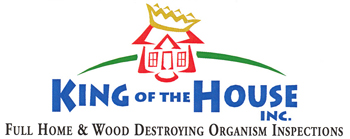Washington State Standards of Practice
These standards are taking quite a few hits from certain people in public forums. Many of those people, the most vehement critics, oddly enough, are from out of this state. Whether you like these rules, are indifferent, or hate them, I can tell you that they are the work of the board as a group. I do not think that any board member likes every single word in the SOP, but there was a majority of four members in favor of any specific rule -- or it would have been modified or deleted. This debate was heated at times and, as is the case with many laws and rules, some compromises were made.
Although these rules were passed by the board, Washington State inspectors have the chance to get involved in the process once again. There will be a public hearing on the rules. If you do not like them, get involved. Despite what some critics might say, those of us on the board are trying to do a good job, also working within the confines of the law that was given to us by the legislature last year. If you do not like the standards and ethics, then go to the public hearing (time and date below).
Regardless of your opinion as to how the document reads, I can tell you that wrangling all of this till you have something everyone on the board can agree on, whether they love it or not, is an arduous job. Maybe you have to be there to understand how hard it is to get majority agreement on some of the language. We saw very few inspectors or members of the general public at these critical board meetings. At some point, everyone of us should serve on a government committee, then we would all understand how it works. It is not possible to make everyone happy and compromises, even among the board members, end up being made frequently. By the way, these compromises all take place in the wide-open, they are obvious at the meetings. That is where the decisions are made, not behind closed doors or by pre-arrangement as some have implied publicly.
Public hearing:
February 24, 2009 at 10:30 A. M.
Department of Licensing
2000 4th Avenue W
2nd Floor Conference Room
Olympia, WA 98502
To see additional information on home inspector licensing in the state, click on George's head.

Steven L. Smith
Bellingham WA Home Inspections



Comments (12)Subscribe to CommentsComment